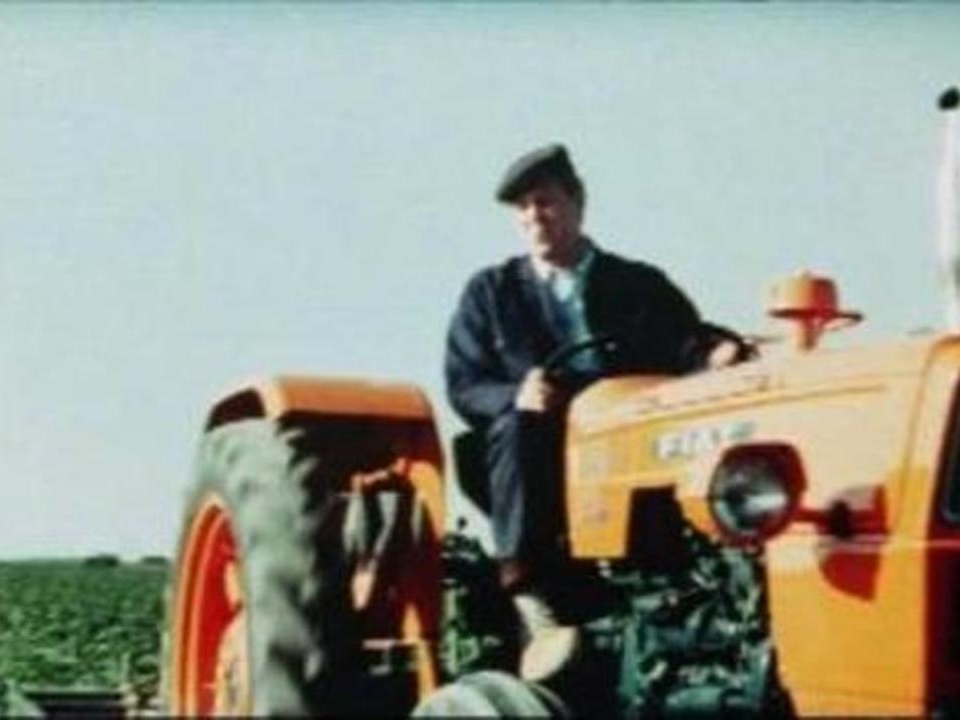
A young farmer's wife brings her husband something to eat in the field during summer time.
“Kunnen we ooit nog wel onbevooroordeeld kijken naar oer-Hollandse iconen als het fiets – koe – tractor – groen is gras-leesplankje dat in Wim van der Lindens en Wim T. Schippers klassieke poldermusical Summer in the fields (1967) wordt uitgestald? De in opgepoetste Mondriaankleuren gedraaide kortfilm is zowel Hollandse School op z’n best (Bert Haanstra verzorgde de montage), camp avant la lettre, een pre-inburgeringscursus voor Balkenendeland als ‘last but not least’ helemaal Wim T. (zeikende koeien en schijtende varkens afgewisseld met een Sound of Music-achtige ode aan het landleven).”
Dana Linssen1
“An early example of deliberate camp (one that nearly dates to the first use of the term and predates the writings of Dyer and Babuscio), a film not even en vogue to indicate a homosexual sensibility, might be the third in a series of four Sad Movies, entitled Summer in the Fields. We see rather lavish shots in CinemaScope of cows, of a farmer on his tractor, shown in fetishizing close-ups, digging up potatoes. While the farmer removes sweat from his face with a huge, red handkerchief, we get an imaginary balloon, clarifying that he longs for a cup of coffee. Meanwhile his wife is in the kitchen, in a setting which seems straight from The Sound of Music (Robert Wise, 1965), putting his meal into a basket. We follow her on her trip to the fields, whereas her husband is awaiting her arrival. A bit abrasive, he asks her why it took so long, but then he drinks his coffee, and the couple, proudly standing next to the tractor, start singing an overtly gay song about their mutual love, wondering whether people can be more happy than they are now that it is ‘summer in the fields’. At the same time, some inserts show cows peeing and pooping, actions that are emphasized by the sounds of huge farts on the soundtrack that accompany the song. As the man finishes his coffee, the song stops right away, and he says to his wife: ‘Well, that was mighty good’. It is not without a certain irony that a voice-over at the end of this short, which seems the polar opposite of the series of Sad Movies it belongs to, announces that the farmer continues with ‘faith, hope, and charity, contributing his share to the happiness and welfare of his family, his country and all mankind’.”
Peter Verstraten2
- 1Dana Linssen, “Filmbanktour: Denkend aan Holland,” De Filmkrant, 15 februari 2016.
- 2Peter Verstraten, Humour and Irony in Dutch Post-war Fiction Film (Amsterdam: Amsterdam University Press, 2016), 156.

